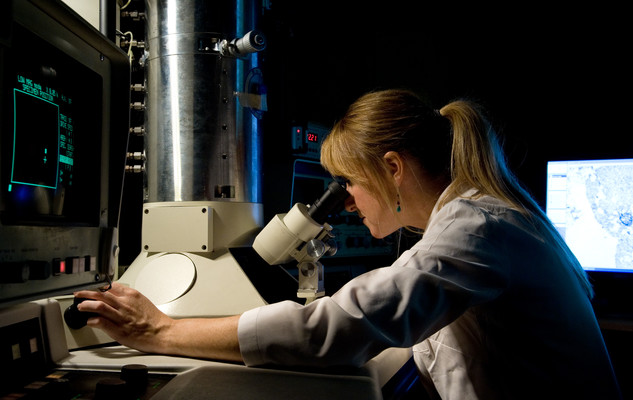What to do with a Biochemistry degree
Explore the careers you might be interested in going into after studying a Biochemistry degree.

What can you do with an undergraduate Biochemistry degree?
Biochemistry students can go into a number of careers, including biology, and sometimes with further study, medicine.
If you decide to study at Sussex, you can choose from a range of modules and will get to practise your skills in laboratory sessions. Find out about our courses and course content.
Already at Sussex? Visit our careers site.
What jobs can you get with an undergraduate Biochemistry degree?
Jobs may include, but are not limited, to:
- analytical chemist
- biomedical or forensic scientist
- data scientist
- ecologist
- [jobs in] energy, environment and health
- engineer
- food, bio- or nano- technologist
- pharmacologist
- researcher
- science writer
- scientific laboratory technician
- toxicologist.
If you haven’t studied a degree yet and you’re considering a Biochemistry course, you may want to browse our:
What do our Biochemistry graduates do?
Hear from some of our Biochemistry graduates about their careers beyond Sussex:
- Roos Bruggink – Senior associate (Global Health & Social Impact)
- Lois Barber – Intellectual Property advisor.
Skills
You may develop skills including:
- analysis and problem solving
- independent thinking
- working in a laboratory
- numerical and data analysis
- verbal communication
- teamwork and communication
- IT
- scientific integrity and ethics
- writing with scientifc rigour
- creative thinking
- commercial awareness
- entrepreneurship.
At Sussex, you can further develop your study skills by signing up for a range of workshops, tutorials and online resources.
Work experience and placements
You may be able to develop practical and technical experience during your degree through:
- laboratory work
- your final research project (if you do one as part of your course)
- applying for research schemes such as our Junior Research Associate scheme for undergraduate students.
At Sussex, during your degree, you can also choose to apply for one of the below:
- a professional placement
- a research placement (you may able to do a research placement if you are a high-performing student on a selected science course)
- an integrated placement if it is a requirement for a course.
This may help you gain skills and work experience before you graduate. You’ll be responsible for applying for and securing your placement. Find out more about placements and internships at Sussex.
You may also want to look for work experience opportunities at organisations, such as:
- government departments
- research institutes and universities
- pharmaceutical and biotechnology companies
- the National Health Service (NHS).
What can you do with a Masters in Biochemistry?
You might want to pursue a career in any of the above jobs. Or you could think about continuing your education further.
At Sussex, we offer research (PhD) degrees in the following subject areas:
- Medicine (through Brighton and Sussex Medical School)
- Biochemistry
- Biology
- Chemistry.
You may then be able to go into an academic career, including roles such as:
- researcher
- higher education lecturer
- professor.
For more information about what to do after a Biochemistry degree, see the Prospects website.
If you’re a current student, see more advice from our careers section.